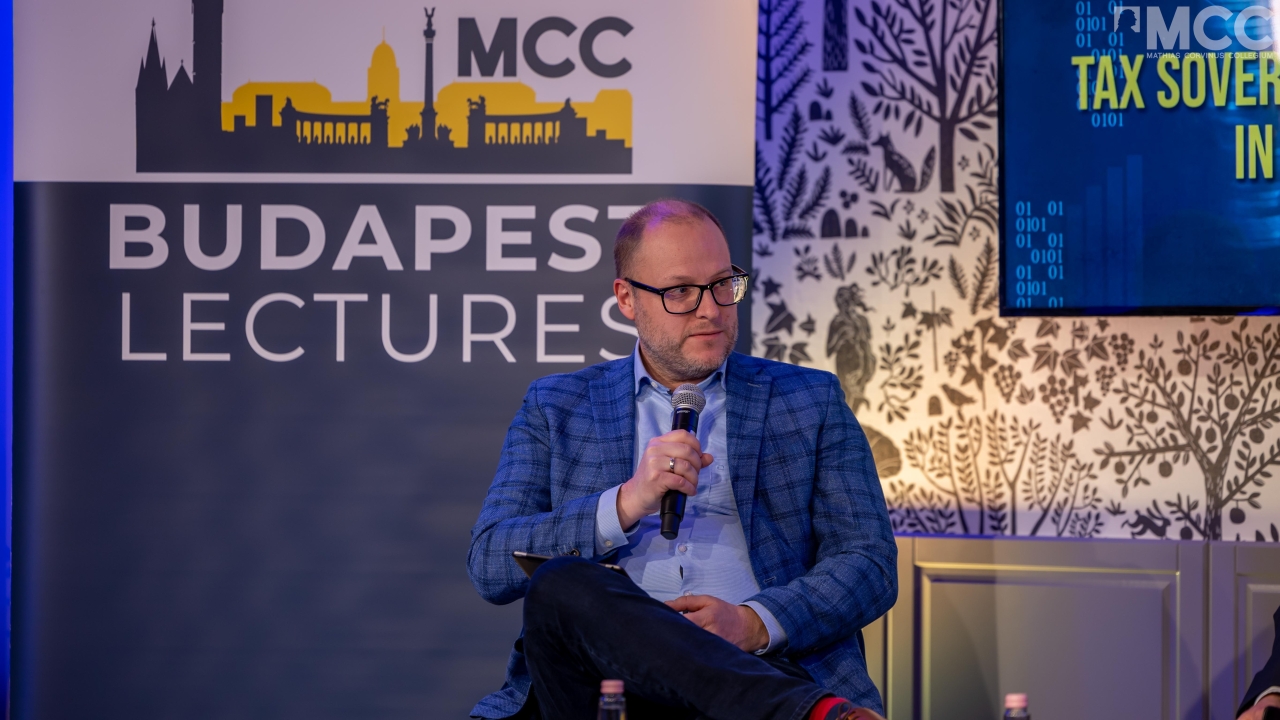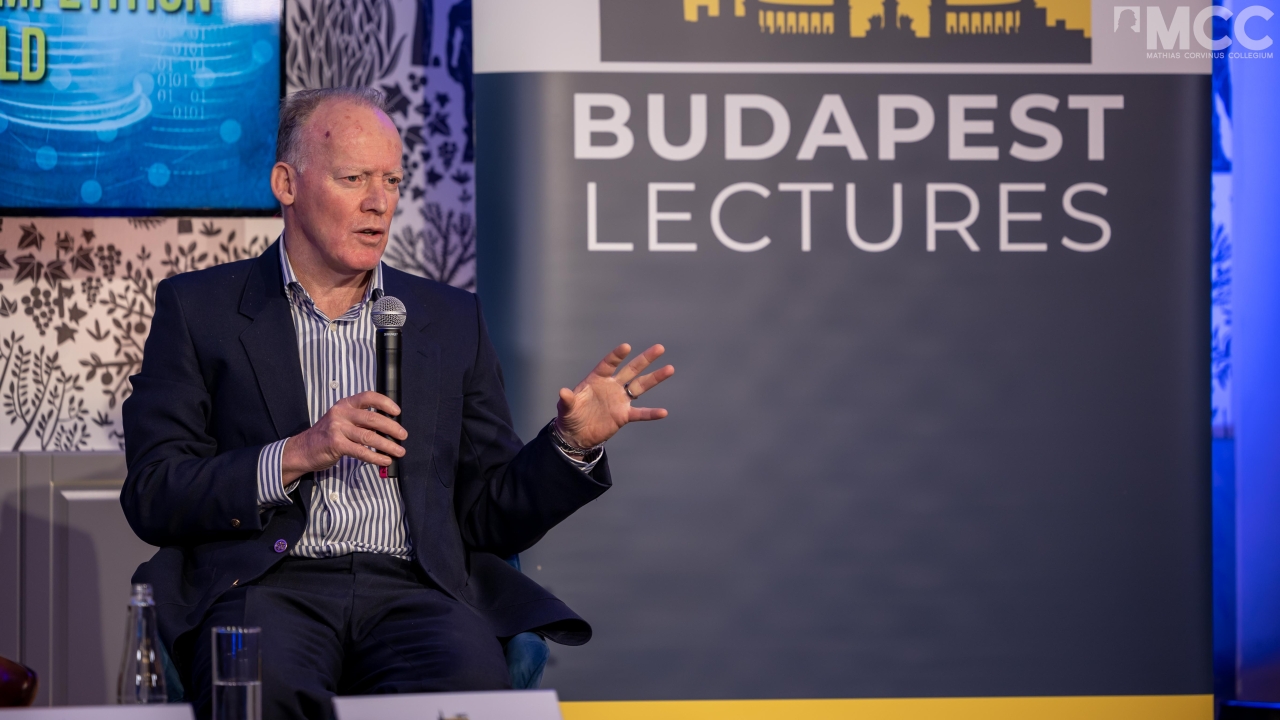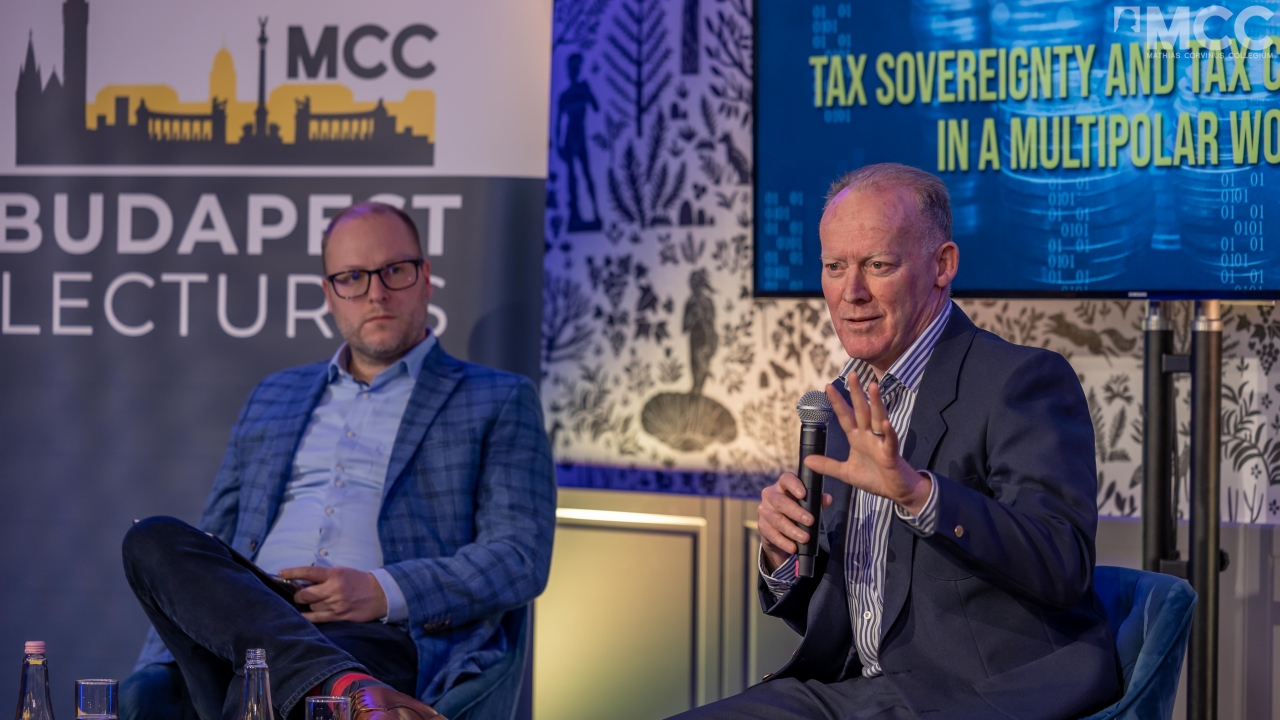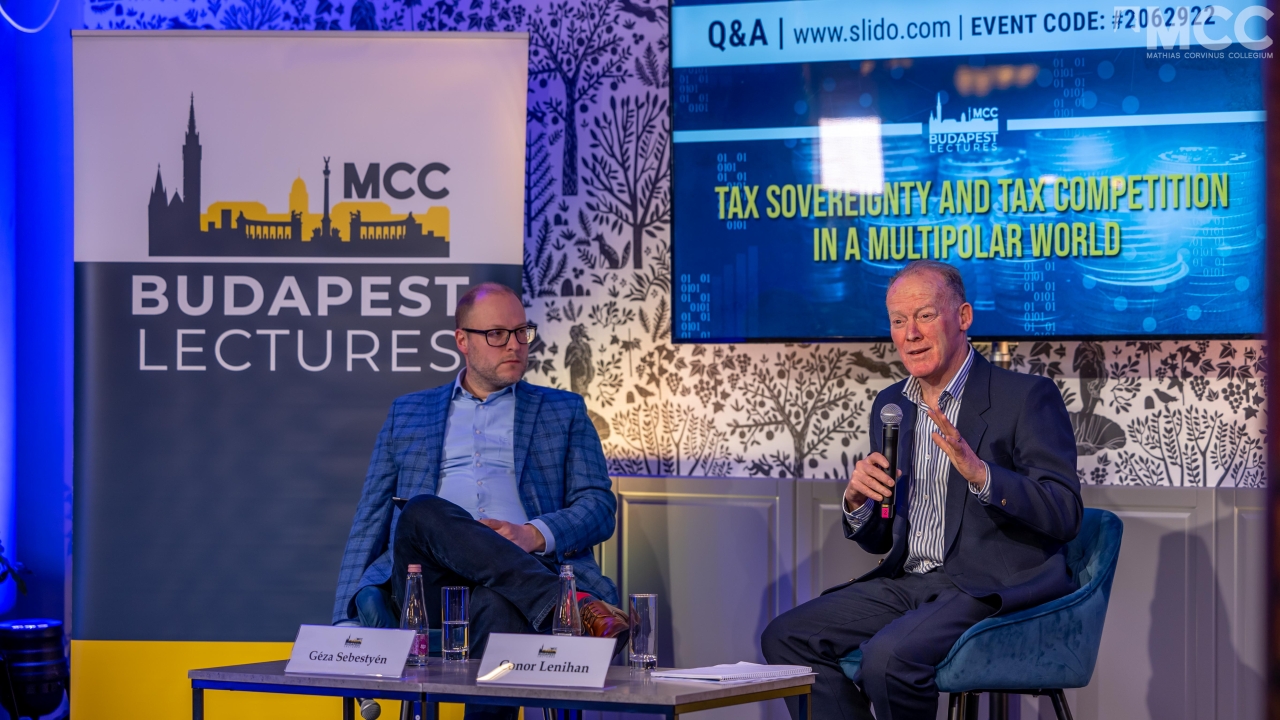Reading time: 3 minutes
A low tax burden alone is not enough to make a country attractive to investors, said Conor Lenihan, former Irish Minister, during the MCC Budapest Lecture entitled Tax Sovereignty and Tax Competition in a Multipolar World organized by Mathias Corvinus Collegium. He is one of the founders of the Global Tax Institute, who considers the professional debate around the introduction of the tax important and valuable. Meanwhile, Hungary has achieved a breakthrough in the application of the global minimum tax, as the Council of the European Union has agreed to include Hungarian business tax in the global minimum tax, allowing Hungary to join the agreement.
The concept of Global Minimum Corporate Tax (GMCT) was proposed by OECD as a principle of profit taxation. The proposal led to debates but finally, a broad international political consensus was reached. According to Conor Lenihan, the debates are often presented in a very simplistic way in public life: one looks either at the interests of the big multinationals or the interests of everyday people, but rationally speaking, the existence of a strong business sector is in everyone's interest. The discussion was moderated by Dr. Géza Sebestyén, Head of Economic Policy Center, MCC.
In the 1980s, Ireland saw a significant reduction in tax rates, which brought extraordinary economic development to the island nation, a state where, before the reform, basic services were often a problem. It is difficult to describe the impact of economic development, which has been extraordinary," said the Irish expert. He said that in the early days, big companies did indeed choose Ireland because of the low tax burden, but over time the human factor came into play as the talent and potential of the country's population were needed for long-term growth. Summarizing the example of Ireland, Lenihan said that the positive changes did not happen overnight but over many years.
The guest lecturer also mentioned the fact that there is competition not only between countries but also within a nation, especially in federated countries such as the United States, Germany, or Switzerland. In these countries, tax rates often vary from one area to another, so the battle for investment is also fought within national borders.
Lenihan was asked why Ireland, as the clear winner from low tax rates, does not oppose the introduction of a global minimum tax. He gave two reasons: first, Ireland has little room for maneuver, being economically highly dependent on the UK and, second, its foreign policy largely follows the US line. The other reason is that the 15% increase in the draft tax rate does not seem so drastic compared to the current 12.5% corporate tax rate.
According to Conor Lenihan, the GMCT not only has its skeptics internationally but is also quite divisive in US domestic politics. In addition, he believes it is unwise to introduce drastic economic policy changes, especially in this crisis-ridden global economic environment. He stressed that in the current circumstances, a tax increase could significantly reduce the productivity of companies.
Updates on the issue: the Council of the European Union has agreed to include the Hungarian business tax in the global minimum tax, which could remove an obstacle to the Hungarian government joining the agreement.







